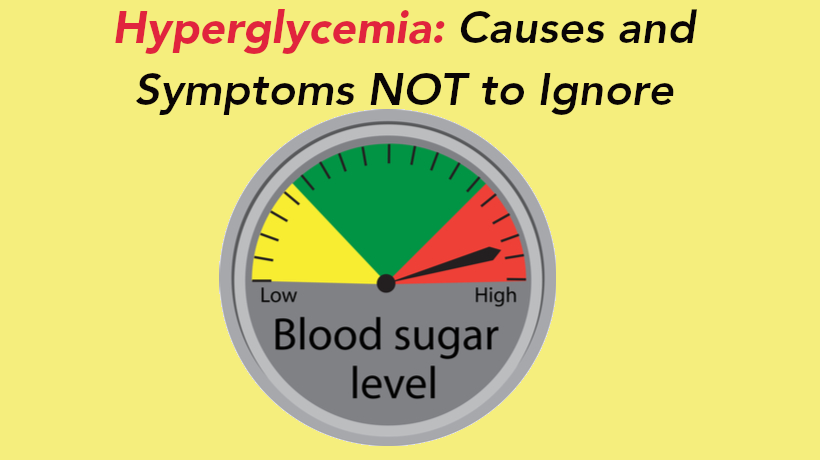Hyperglycemia refers to high levels of sugar, or glucose, in the blood. It occurs when the body does not produce or use enough insulin, which is a hormone that absorbs glucose into cells for use as energy. According to Deborah Weatherspoon, Ph.D., “High blood sugar is a leading indicator of diabetes. If a person with diabetes does not manage the sugar levels in their blood, they can develop a severe complication called diabetic ketoacidosis (DKA).” Here is what you need to know about hyperglycemia:
What are the symptoms?
According to an article on Healthline medically reviewed by Peggy Pletcher, MS, RD, short-term symptoms of high blood sugar include:
- excessive thirst
- excessive urination
- increased urination at night
- blurry vision
- sores that won’t heal
- fatigue
If you experience symptoms of hyperglycemia, it’s important that you check your blood glucose levels. The article states, “Untreated high blood sugar can lead to chronic complications, such as eye, kidney, or heart disease or nerve damage. The symptoms listed above can develop over several days or weeks. The longer the condition is left untreated, the more severe the problem may become.”
What causes hyperglycemia?
Hyperglycemia can be caused by a number of contributing factors including:
- eating more carbohydrates than usual
- being less physically active than usual
- being ill or having an infection
- experiencing high levels of stress
- not getting the right dosage of glucose-lowering medication
Are there treatments?
According to Weatherspoon treatments for hyperglycemia include:
- Exercise: Physical activity can use excess glucose in the blood. However, if a person with severe hyperglycemia finds ketones in their urine, they should avoid exercise, as this breaks down more fats and might speed up ketoacidosis.
- Moderating the diet: Eating less during mealtimes and snacking less, as well as focusing on low-sugar foods, helps keep the amount of glucose at a level that the body can handle. A dietitian can help a person adapt their diet in gradual and healthy ways.
- Altering medications: A doctor may recommend changing the timings or types of medication and insulin a person is taking if they are not reducing blood sugar as they should.
What are the complications of untreated hyperglycemia?
The complications of diabetes are the effects of prolonged hyperglycemia. When the blood sugar levels are consistently height some of these issues may develop:
- Skin complications: Bacterial and fungal infections, diabetic blisters, eruptive xanthomatosis (a condition that causes yellow, pea-sized lumps on the skin that have a red ring around the base), digital sclerosis (which causes thick skin with a waxy texture to develop on the back of the hand)
- Nerve Damage: Peripheral neuropathy (nerve damage in the feet and hands, leading to numbness, tingling, or weakness.), autonomic neuropathy (affects automatic processes in the body, such as bladder control, sexual function, and digestion.)
- Eye complications: Possible vision loss or blindness due to damage to blood vessels in the back of the eye.
Sources:



